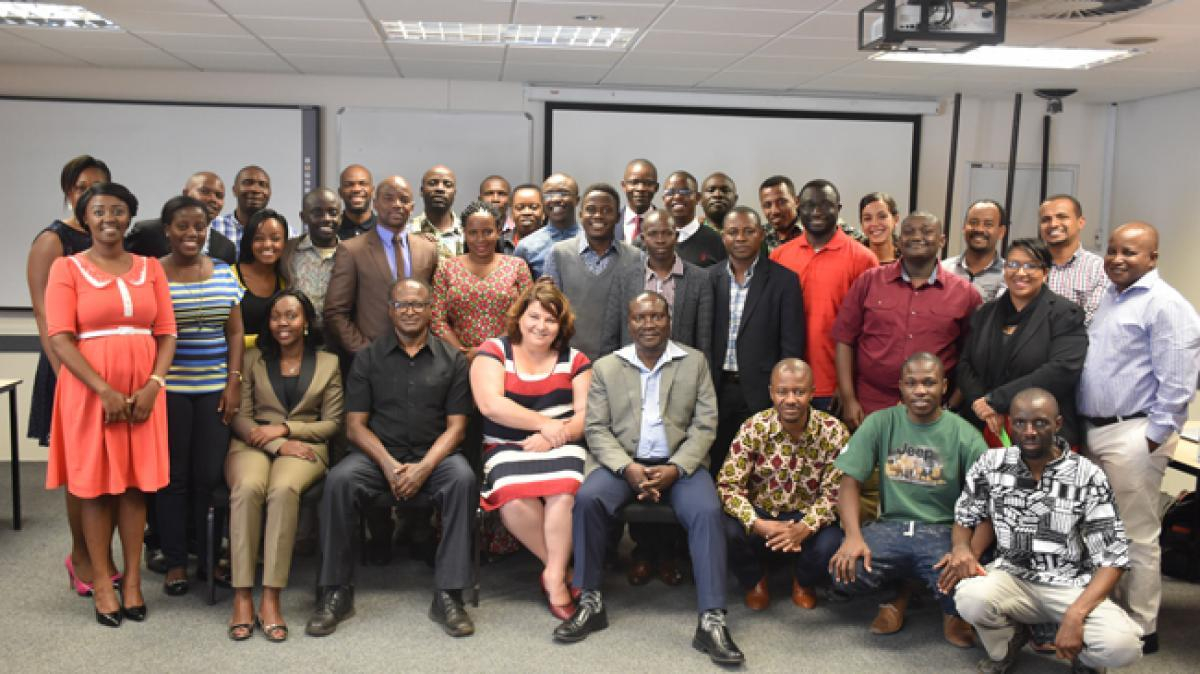The Centre for Human Rights, Faculty of Law, University of Pretoria, in collaboration with International Work Group for Indigenous Affairs (IWGIA) hosted its Advanced Human Rights Short Course on Indigenous Peoples’ Rights in Africa from 25-29 September, 2017. The course brought together 32 participants; from different countries across Africa and Europe, with backgrounds that include: NGO managers, delegates of indigenous communities, academia, government policy makers, civil society, independent community consultants and legal practitioners.
The course started with an opening address by Dr Melakou Tegegn, member, Working Group on Indigenous Populations/Communities-African Commission on Human and Peoples’ Rights (WGIP/ACHPR), followed by a presentation by Prof Alexandra Xanthaki, Director of the Centre for Human Rights, Brunel University London. Prof Xanthaki enlightened participants on the concept of the United Nations Declaration on the Rights of Indigenous Peoples’ and the sustainable development goals and climate change vis-à-vis indigenous peoples’ rights.
Dr Melakou Tegegn gave participants an overview of some general concepts on women and children’s rights and noted the specificity of women’s rights within the indigenous context. His lecture was followed by a presentation by Mr Samuel Tilahun Tessema, consultant, WGIP/ACHPR. Mr Tessema engaged participants on Indigenous people’s rights and the African regional human rights system and noted some key issues contained in the Working Groups’ ACHPR 2003 Report.
Other topics taught during the course include: relationship between international finance institutions (World Bank, IMF, AFDB) and outcome document of the World conference on the rights of indigenous peoples; policy and practice of African states on indigenous peoples’ rights: trends, challenges and perspectives; and indigenous peoples’ and conservation in Africa: free, prior and informed consent (FPIC) vis a vis extractive industries, infrastructural as well as energy projects and international banks. The course is aimed to equip professionals in this area of practice with adequate knowledge and skills that will enable them deliver better on their mandate and contribute to the advancement of indigenous peoples’ rights in Africa.
The highlights of the course included country presentations by participants on status of indigenous peoples’ rights and discussions on issues such as indigenous claims, existing legal framework, and protection of heritage sites. Delegates congratulated a participant who celebrated her birthday during the course and extended their heartfelt wishes for a blissful celebration.
The Centre for Human Rights is thankful to everyone that supported the short course and remains steadfast in its commitment to human rights capacity building and education in Africa.


